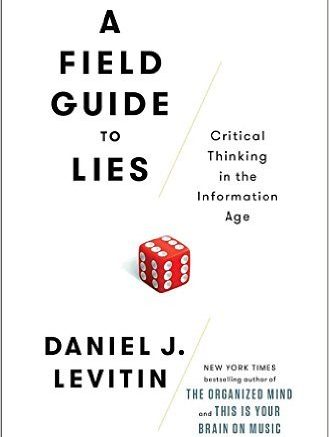In the thousands of articles that I have written – I don’t remember ever recommending a book.
So, this is a first for me!
I refer to the article “Nullius in verba: A crash course in understanding numbers” – A Field Guide to Lies and Statistics. By Daniel Levitin. Dutton; 292 pages; $28. Viking; £14.99
It states that “PEOPLE take in five times as much information each day as they did in the mid-1980s.
With all these data sloshing around it is easy to feel lost.
One politician uses a statistic to back up her argument; a newspaper uses another fact to refute it; an economist uses a third to prove them both wrong.
In “A Field Guide to Lies and Statistics” Daniel Levitin, an American neuroscientist, shows the reader how to find a way through all this numerical confusion.
Using plenty of examples, Mr Levitin shows how easily statistics can lead people astray.
Mr Levitin repeatedly throws these statistical curveballs at his readers, training them to adopt a take-nobody’s-word-for-it attitude. It is an effective pedagogical technique.
Some statistics turn out to be plain wrong, but more commonly they mislead.
Yet this is hard to spot: numbers appear objective and apolitical.
A favourite of academics and journalists, when analysing trends, is to “rebase” their figures to 100 so as to back up the argument that they wish to make.
For instance, starting a chart of American GDP growth in 2009, when the country was in recession, tricks the reader into thinking that over the long term the economy is stronger than it really is.
“[K]eep in mind that experts can be biased without even realising it,” Mr Levitin reminds people.
Some readers may find Mr Levitin’s book worthy but naive.
The problem with certain populist politicians is not that they mislabel an x-axis here or fail to specify a control group there.
Rather they deliberately promulgate blatant lies which play to voters’ irrationalities and insecurities.
Yet if everyone could adopt the level of healthy statistical scepticism that Mr Levitin would like, political debate would be in much better shape.
This book is an indispensable trainer.”
By the way, I do not have any formal education, training or experience in statistics, other than the part 1 examinations of the Institute of Statisticians (UK) that I passed in 1975.
Nullius in verba (Latin for “on the word of no one” or “Take nobody’s word for it”) is the motto of the Royal Society
Leong Sze Hian
